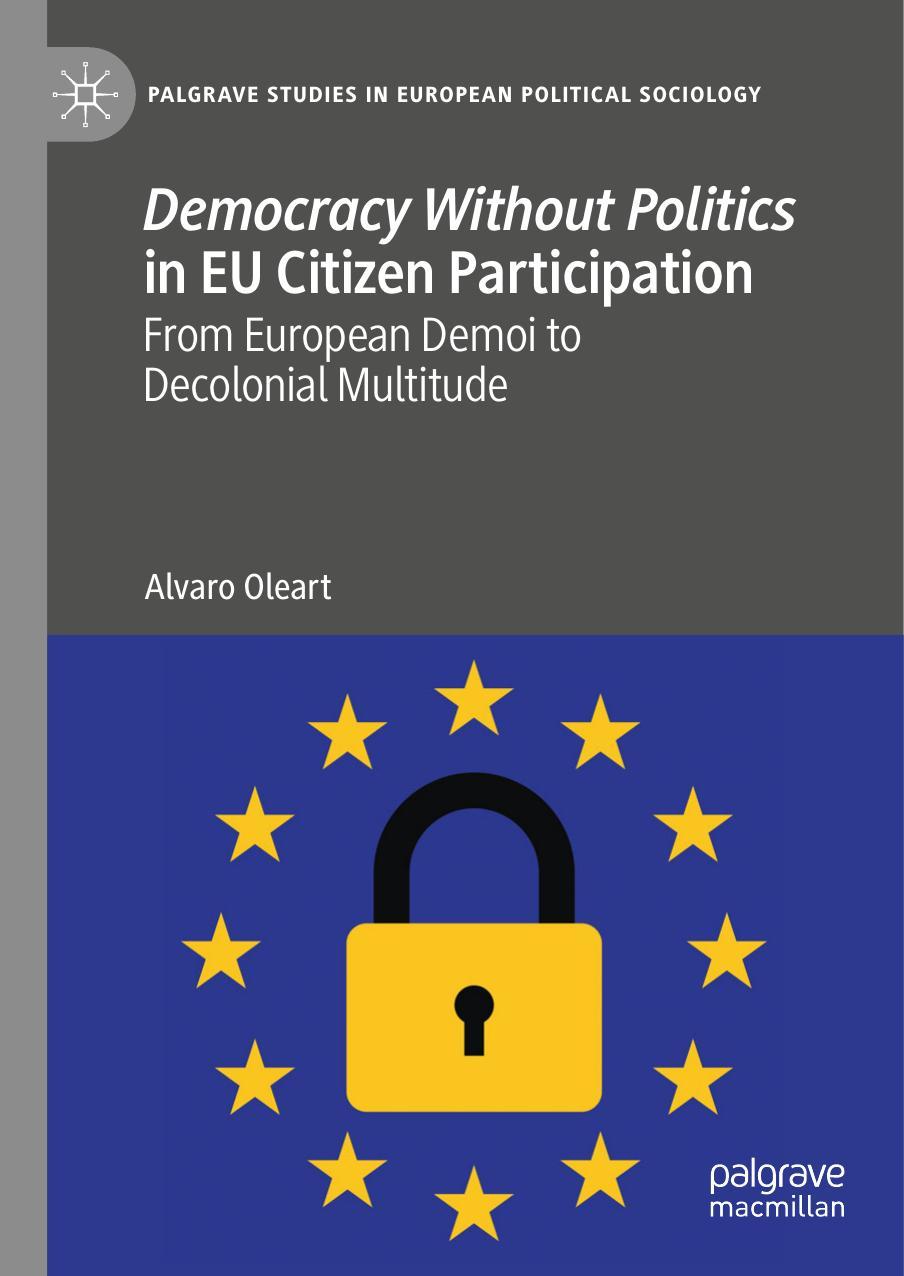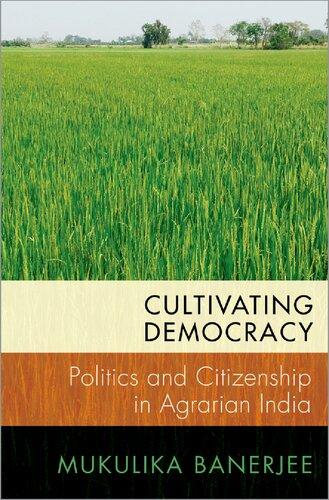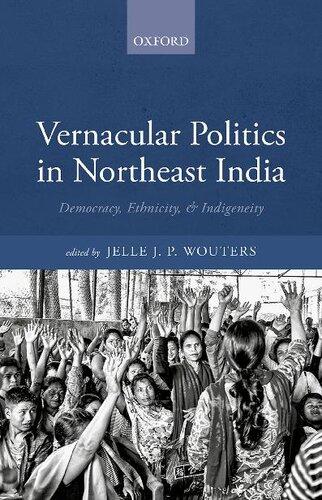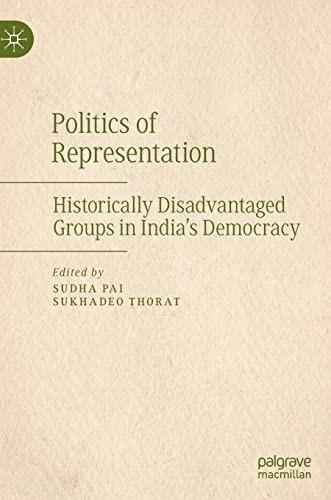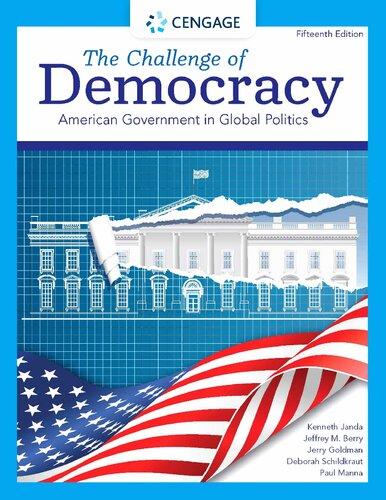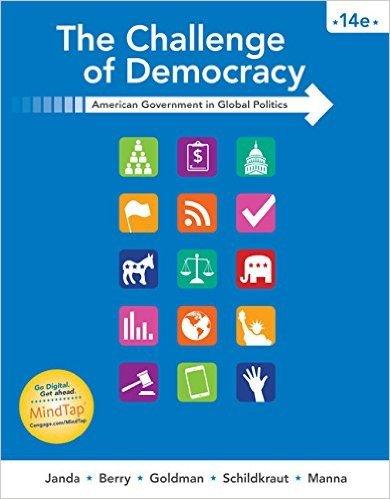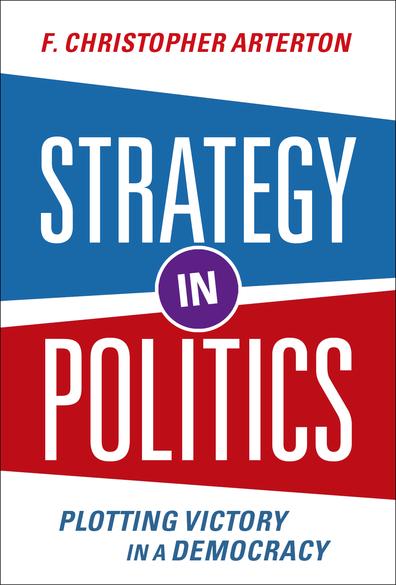To Create the Future: Strategic Thinking in Politics
“Strategy” is an overused word. When such terms are used in a vast variety of contexts to cover a broad range of behaviors, they acquire vagueness. Overused words take on a universality that defies the precision needed to guide effective action. Thus, “strategy” has diminished as a useful concept that can steer those engaged in political combat toward effective action.
Over the past three decades, I have been engaged with the students at George Washington University’s Graduate School of Political Management in a collective effort to retrieve the concept of strategy from its overemployment and supply it with sufficient precision to be useful for those who seek to create the future through politics. While the reader may conclude that this will be primarily an exercise in definitional argumentation, this author is not, in fact, interested in squabbles over definitions. Instead, this volume will bring together a variety of vantage points through which one can understand the process of strategy making in politics. These perspectives add up to a complex notion that should shepherd political managers toward effective strategic thinking. I see strategy as a way of approaching the world, of dealing with opposition, of creating the future through democratic politics. Understanding the process by which strategy is formulated will allow political managers to plot more victories for their side, for their vision, for their ideals, and for themselves.
We need to start by identifying several parameters of this conversation. First, I have chosen to write a guide that will be useful to practitioners. Having spent all of my professional life as an academic, this is something of a change and a challenge. But I have long
believed that political science should be relevant to the work of those attempting to bring about a desired future. I firmly believe, moreover, that institutions of higher education have an obligation, through their research and teaching, to define the boundaries of appropriate conduct in democratic politics. Too often academics regard the push and pull of practical politics as demeaning and dirty. From this viewpoint, the concept of strategy comes off as the core of a manipulative approach to the making of public policy. My motivation for writing this volume comes from the fact that despite a lot of analysis by journalists of the latest campaign strategy, the term is poorly understood and even more poorly practiced. I hope the busy practitioner will find the chapters that follow to be concise enough to fit into his or her hassled, professional life.
A second signpost for the reader is that inevitably strategy is situational, meaning that how one behaves strategically ought to be heavily influenced by the situation in which one finds oneself. This realization implies that providing general guidance without reference to concrete circumstances will only carry us so far. So, while I aspire to give usable advice to the practitioner, the reader should not assume that he or she will discover here how to act in a given fight. My hope instead is to provide a general orientation toward thinking strategically that will allow practitioners to improve their performance across the board in whatever competitive situation they find themselves.
A third overarching bit of guidance as to what follows: the reader can expect to find highly useful advice on how to work successfully in democratic systems and a set of guidelines for thinking and acting strategically. But these directions fall short of an inventory of rules or laws to follow. There are two important reasons for this absence. First, because strategy is situational, strategic thinking must be anchored in the immediate environment one confronts. In political life, one needs to respond to real circumstances in a real fight with a real opponent. How one plots and acts will inevitably be determined by that situation. Second, the strategist must recognize—along with Karl von Clausewitz, the great Prussian military theoretician from the Napoleonic era—that, to the extent one follows a rulebook, one’s opponent may read that book and use that knowledge to predict and counter one’s action. Even if the opponent has no access to the same
rulebook, the point still stands that to the extent that one’s actions become predictable, one becomes vulnerable to the countermoves of the opposition.
The readers should keep in mind yet another caveat. For many citizens of contemporary democracies, “politics” is a dirty word. Not so for the author. In fact, politics is the only way to resolve social disputes peacefully. Every polity is a snake pit of competing interests; democratic politics provide the way to achieve agreements on policy. Remember, however, that politics trump policy. You may have the very best vision for the future, but you will need to be engaged in politics to make that vision a reality.
Finally, in discussing strategy in politics, I will frequently resort to drawing examples from competition in an electoral context. But I mean political strategy to refer to broader usage. There is a vast realm of human behavior to which the term “political” justly applies. We cannot confine the meaning to electioneering as do many news organizations when they give the job title “political reporter” to the person who covers election politics. Instead, in the broader sense used here, “political” should apply to advocacy, issues management, public relations, legislating, fundraising, public communications, policymaking, and community organizing as well as campaign management. All of these collective human endeavors are amenable to strategy.
Nevertheless, examples in terms of election campaigning are quite useful to our purposes here as providing a model for our understandings of the essence of strategy. Campaigns take place in an intense environment of direct, overt opposition most often marked by “zero-sum” competition. They are most often fought over a finite period with a definite endpoint. They are intense, all consuming, and demanding, requiring a fluidity of action that often is not true of engagements in, for example, advocacy politics where the fight may be more or less continuous. In developing and implementing strategy, campaigns more closely resemble war and sports than they do the world of commercial business. By contrast, issue advocacy and nonprofit management, even though applied to the “political” arena, may resemble more closely strategy development in a business setting. But election politics offers a compressed version of strategic maneuvering,
from which we can abstract understandings that generalize to other forms of politics.
Throughout this study, I will use the term “political manager” to describe those who pursue a career in public life. They may be candidates or public officeholders—which I will often designate as “politicians”— or they may hold jobs and appointed positions that are deeply engaged in the world of politics. Political managers handle the politics of their employers, be that a candidate, officeholder, corporation, association, interest group, university, etc. They work for politicians and organizations engaged in policymaking, providing services such as strategic advice, public relations, digital communications, fundraising expertise, and an abundance of similar areas of technical knowledge. Professionally, as dictated by the fortunes of politics and personal careers, they move in and out of the formal institutions of government and politics: political parties, political action groups, campaign organizations, legislative staff, executive branch agencies.
Whatever their career choices, political managers are united by a common language; a set of shared skills; a strategic mindset; and, hopefully, an appreciation of their professional responsibilities to the institutions of democracy. Their community is more than a craft in that it emphasizes change, innovation, and entrepreneurialism, but less than a profession in that it lacks a hard boundary of licensure or certification. While they are sharply, viciously divided by vision and purpose, they share the twin common traits of commitment to political activity to mold the future and the understanding that power and strategy are critical requirements to that process. The best among them are, thus, simultaneously visionaries and manipulators, and they balance themselves precariously between these values.
We conclude this Preface with explicit attention to this question: Why do we need better strategy formulation in politics? The most obvious answer is because politics is important. Those at work in the field are seeking to mold our world so as to achieve a set of values they hold dear. While those values can certainly be for private gain, the best political managers are laboring to nudge the future toward a vision that will benefit all, even those who oppose them.
To be sure, political management and strategy can allow evil people to succeed. It is an unhappy fact of life that the approach to strategic
thinking taught here can be used to achieve wicked goals. This leads us into an enduring debate as to whether the ends justify the means or, more narrowly, whether some ends justify some means. Ultimately, we have to rely upon the good judgment of political managers, just as Machiavelli wished his prince to be virtuous. Democratic institutions provide some protections, steering political managers toward the common good. But democracy cannot guarantee good behavior, for it is not just the political leaders that we have to worry about. Human history provides numerous examples—the Inquisition, the Holocaust, the genocides in Bosnia and Rwanda—in which large numbers of citizens joined willingly in evil deeds. Citizens can be stampeded into malevolence; democratic norms can be brushed aside. In arming readers with strategy, I plead for principled and laudable behavior, especially avoiding actions that weaken democratic institutions in the pursuit of short-term political goals.
Strategy lies at the core of political management. Strategic ability should make political managers more effective in pursuing their dreams. This is not the place to rehearse all of the justifications for democracy. Nevertheless, still democratic politics hold out the promise of—and draw strength from—the peaceful resolution of conflicting values. Those who struggle to fulfill their goals through the institutions of democratic politics should employ strategy to achieve their visions. If political managers are adroit in their strategic thinking, they may enter this battlefield better prepared for the conflict of ideas. They may be better able to understand the dilemmas inherent in democratic politics, between power and purpose, between strategy and leadership, between empowerment and manipulation. To these ends, this writing is dedicated.
The Quest for Power
If you want to succeed in politics, understand that politics is about power. In turn, through politics we collectively shape the future. Those who would guide our posterity must understand that the essence of politics is power. Put another way, influencing the thinking and actions of others constitutes the core of political engagement. This book is intended to assist activists and politicians, amateurs and political professionals, in their efforts to orchestrate our future. But some readers may not be entirely comfortable with the assertion that politics is power employed. Power per se implies forcing one’s will upon another. Yet, if politics is the means through which we can shape our collective future, how can we come to terms with the necessity of power? Even discussing the fact that in our quest to shape our tomorrows, the idea of asserting power may be troublesome to some readers. They recognize that the exercise of power may not be pleasant for those being influenced or, for that matter, the individual who is trying to force his or her will upon another. They may derive some reassurance, however, from the fact that in a democracy, power normally derives more from voluntary support than from coercion. We stand with Winston Churchill who famously opined, “Democracy is the worst form of government, except for all the rest.”1 Participation in democratic politics provides the best vehicle available for collectively achieving the ideal society through nonviolent means. Political managers2 who would operate within a democratic system must become comfortable with the fact that nurturing, managing, and applying political power is, simply put, essential.
Even so, we cannot escape the coercive nature of political influence. Much of political life can be antidemocratic. Our purpose here is to describe the habits of mind necessary for one to be effective within
Strategy in Politics. F. Christopher Arterton, Oxford University Press. © Oxford University Press 2023.
DOI: 10.1093/oso/9780197644836.003.0001
democratic politics short of using unconscionable force. Yet for those who seek to advance their vision of an ideal society through politics, the stark reality begins with the recognition that politics is power exercised. There are, to be sure, softer and harder forms of influence. Even the adroit, but often maligned, Niccolo Machiavelli preferred achieving agreements when possible to the aggressive use of cruel force. And, though Machiavelli has a lot to teach us about power, we have learned a great deal more about managing politics through democratic institutions in the 500 years since he wrote The Prince and his Discourses. Fortunately, Machiavelli has not had the last word.
Ambitious political managers need to understand that even though their goals may be the most benign, even with the highest hopes for nothing more than to improve the standing of all around, even with a vision of an enlightened future of boundless progress, they cannot be squeamish about the necessity of power. Whatever the purpose, vision, or objective you bring to political life, however noble your aspirations might be, you should realize that there will be those who will disagree, propose alternatives, attempt to delay, work to undermine, complain and criticize, and endeavor to persuade others to the contrary. You will need to be persistent in pursuit of power, not for its own sake, but because power provides the energy to secure desired policies. Countering those who are foolish enough not to see the wholehearted merits in what you are trying to accomplish will require a grasp of strategic insight in the application of power.
The anthropologist Margaret Mead has been quoted many times as follows: “Never doubt that a small group of thoughtful committed individuals can change the world. In fact, it’s the only thing that ever has.” Here’s a prime example of what Mead meant. On December 22, 1971, President Richard Nixon signed into law the National Cancer Act, which created the National Cancer Institute and with it a greatly enhanced commitment to cancer research. On its face, the policy ideas promoted in the act might not seem to be terribly controversial. But the details of the case well illustrate that it can take a great deal of pushing and hauling to energize the policymaking machinery, even though the cause may command wide approval. Nixon and the US Congress only acted to address this growing killer disease after decades of pressure lead by a privately funded interest group, the American Society
for Control of Cancer (later named the American Cancer Society). The story is one of leadership by two committed activists, Dr. Sidney Farber of Boston Children’s Hospital and Mary Woodward Lasker of the Citizens Committee for the Conquest of Cancer. Lasker decided to give the drive for the federal funding the appearance of a national crusade. She adopted or invented all the techniques of modern grassroots lobbying. As a matter of adroit strategy, she decided to position the issue as directed against the “dreaded disease” of cancer among children. She bought TV ads in the Washington area; she took out full page ads in the New York Times and the Washington Post; she organized Washington visits so the members of Congress could be personally lobbied by affected families; and she arranged for high-profile witnesses to testify at congressional hearings. Through these efforts, she became a very influential force advancing medical research. An outspoken Democrat, she eventually brought a Republican president to her vision. Eventually, Lasker won her battle, creating the “war on cancer” and a better future for all of us.
These are the purposes of this volume: (1) to understand the nature of democratic politics and the need to husband and utilize power, (2) to comprehend the concept of strategy as it applies to democratic politics, and (3) to appreciate the reasons that political leadership requires the use of strategy and power. Power and strategy are inextricably intertwined: strategy is the means of employing power to your benefit. We will mostly present arguments and understandings at the level of social politics where groups, organizations, institutions, and individual leaders compete to determine collective public policies. For example, we need to learn how a small group of committed activists can exercise power within governing institutions. Through their actions such as lobbying, letter writing, attending town hall meetings, demonstrating and protesting, contributing money, staging events to attract favorable news coverage, proselytizing among the uncommitted, and filing court actions, interest groups composed of ardent citizens can exercise power far above their numbers in a democratic system.3
There are, however, two additional political arenas in which power and strategy come into play: individual one-on-one conflict and international affairs. Many lessons learned in social politics also have direct application in interpersonal encounters. Calculations of strategy
on an individual basis may also influence the actions of subordinates, peers, and even superiors. We shall also have occasion to consider another level of conflict, namely disputes between nations. We need to keep international conflict within our ken precisely because so much useful theorizing has been undertaken at that level.4 Nevertheless, our primary focus on domestic, democratic politics lies in interaction that falls between the personal and the international spheres. We propose to address how political managers achieve influence within the organizations and institutions of democratic politics.
The three levels—individual, social, and international—are often interrelated. Strategic insights from one arena may inspire understandings germane to our primary focus, social, democratic, domestic politics. Consider, for the moment, that in large measure, Machiavelli’s capacity to bring together understandings from these three levels allowed The Prince to remain so enduring. His primary purpose was to assist Lorenzo de’ Medici to maintain Florence’s dominance within the seething conflict among Italian city states. But Machiavelli argued that the prince had to be simultaneously a strong individual seeking to impose his will on others, a political player of the first order in the internal politics of Florence, and the embodiment of the interests and power of the Florentine city state. Strength on each level magnified the prince’s power in the other spheres. Similarly, while our interest here lies in exercising power within democratic politics, we will profit from remaining open to lessons imported from international and interpersonal conflict.
The Ways of Power
What then is power? How is it obtained? How is it exercised?
As a first step, it should be fairly obvious that exercising power will be markedly shaped by the strategic environment within which one is operating. Influencing legislative politics requires a different approach than, say, trying to win an election. Engagements at this level include both policy conflicts among a narrow segment of activists and political officials as well as clashes within the public sphere involving mobilization of mass constituencies composed of supporters, hostiles, and the
indifferent. Accordingly, we shall discover several instances in which concepts can be usefully translated from one level to others.
Starting from ground zero, as in relations between two individuals, power is the capacity of one actor to intentionally and successfully influence the behavior of another actor even if the latter resists the resulting behavior. On an individual level, this relationship is tantamount to one person making another do something he or she would not do otherwise and even wholeheartedly wish not to do. On the level of nation-states, power is the demonstrated ability of one country to shape the behavior of others and of international entities. This may be achieved through force of arms, infiltration, economic pressure, subterfuge, subversion, public diplomacy, persuasion, negotiated agreements, or leadership.5 Regardless of the means, whether as soft power or hard, the result is that one nation-state is able to affect the actions of another collective entity, be that another country or an international organization such as a nongovernmental organization (NGO) or even the United Nations. As we shall see, moreover, when national survival is imperiled as during a state of war, moral dictates on the use of power tend to be loosened. In contrast, in interactions between individuals or within democratic institutions, we hope that scruples of appropriate conduct will limit the use of aggressive force.
For the sake of clarity, let us first turn attention to the interaction between two individuals, and then we can scale up our analysis to observe differences in collective action. According to political scientist Frederick W. Frey,6 an analysis of power requires us to identify five essential elements: at least two separate individuals—an “influencer” and an “influencee”—an intentional action by the former and the resulting behavior of the latter, and, finally, a setting in which their interaction takes place. An adaptation of Frey’s model appears in Figure 1.1.
Figure 1.1 The Five Elements of a Power Relationship
In this model, “R” represents the influencer and “E” is the person being influenced. The influential behavior initiated by R is represented by the Greek letter omega [Ω], while E’s response is symbolized by the Greek psi [ψ]. The two vertical lines establish the setting or boundaries within which this influential relationship occurs.
To assert that power has been exercised, one must clearly specify each of the five components. The benefit of Frey’s model is that it serves to make concrete a rather nebulous concept. We know that some individuals have power over others, but all too often, we cannot pin down that relationship. That difficulty arises from the fact that the very bases upon which power rests are numerous and range from the very tangible down to rather impressionistic. Authority, as we shall argue below, constitutes one of the more tangible sources of power. As specified laws and the Constitution, a public official such as a governor can issue constraints on individual and corporate activity during a declared public health emergency. We can identify each of Frey’s components in this interaction. The decision may not be popular and is likely to be opposed by some critics on the grounds that the governor does not have that power. But still, most of the affected individuals will comply with the order until it is effectively challenged in the courts or by electoral defeat. An adroit politician is likely to engage in informal negotiations with other elected officials and organized groups of angry citizens. Such pushback does not fundamentally change our observation of a power relationship.
The initiating action in exercising influence can provide some benefit or instigate some sanction for the influenced party. Whether reward or punishment, the influential action could be based upon a considerable variety of resources that can be brought to bear upon their relationship. Knowledge, information, money and material possessions, and social prestige fall into the category of resources that one party can bring to bear to influence the other. Denial of these positive values, moreover, can be used as punishment in the event that the influencee fails to comply. And, of course, there are many other means of inflicting punishment more actively than just a denial of benefits.
In bringing these resources to bear on power relationships, the acting individual may promise a benefit that will be delivered later as a consequence of compliance. Conversely, a threat of future punishment
may be proposed as the certain result of defiance. Thus, a carrot and stick are two ingredients of power, but to be effective, they must be accompanied by a perceived willingness to use them.
Establishing Credibility
The willingness to use power to influence the behavior of others begs us to consider some of the subtle nuances in human interactions. In order for a threat or promise to be successful in inducing the desired behavior, it must be credible. The person being influenced must believe that the acting party has the capacity to actually deliver the sanction or reward and that there is at least some probability that he or she has the will to carry out the promised threat or benefit. But establishing credibility may not be as easy as would first appear, for once the desired behavior has been produced (or not), the power wielder may have little incentive in the short run to actually carry through as promised. Providing a reward entails some cost for the deliverer as does following through on a threatened punishment. In addition, he or she must consider that having to deliver on an ineffective threat may, in fact, either create grievances in the influencee or may itself signal a weakness that could encourage future instances of defiance. Those who seek to exercise power may find themselves facing a trade-off between what is in their best interests in the short run—that is, in the immediate situation—versus their long run need to make their promises in the future credible.
A successful strategist will employ several ways of establishing the credibility of threats or promises. The more common means is to establish a reputation for always delivering upon one’s word. Political managers in democratic politics place a high value upon those whose past reveals a pattern of following through on their words. Within the community of political managers, phrases abound like the following two examples: “He’s a man of his word,” and “Her word is her bond.”
There is, of course, ample reason why reputation should be significant in the personal interactions so necessary in politics. Collective action demands predictability. Individuals proceed with the calculated knowledge of how those with whom they must interact—either as
allies or opponents—will behave. Those who have established a reputation for following through as they have promised engender trust in their future assurances. Where imposing sanctions may be unpleasant for both parties—undoubtedly more so for the punished party—the willingness to inflict harm or pain defined broadly is also essential to reputation. The effective political manager should remember that when building a reputation of reliability in delivering rewards or sanctions, the target lies in the perceptions of those one would influence. Perceptions can alone be strong motivators of behavior, but there will certainly be times in which it becomes essential to actually deliver on a promise or threat or lose the power of reputation.
Another vehicle for making credible a threat or promise can be called “burning the bridges behind you.” This strategy relies on destroying the alternatives to delivering on promises made. In politics this often means issuing a bold, flat, public statement of future actions that makes retreat impossible or so costly to reputation as to be inconceivable. American presidents have frequently resorted to blanket messages threatening to veto legislation that is working its way through Congress. Sometimes, these statements are enough to induce Congress to modify the legislation to the president’s liking; sometimes Congress goes right ahead and passes a law in the face of a veto threat, thereby confronting the administration with a decision as to whether to follow through a veto. A president who, for the convenience of immediate considerations, decides not to honor his threats in so doing risks being challenged more readily in the future. Since both sides know this to be true, a public threat carries the implication that the president has burned his bridges, giving himself no options other than exercising the veto.
Of course, we should acknowledge that since we are discussing here acts in the political realm, sometimes this dance between the president and Congress is just for theater. Both sides are playing to the public audience, rather than really interacting with and trying to influence each other. Nonetheless, the lessons should be clear on the individual level: we can create credibility for a promise of future reward or punishment by figuring out how to give ourselves no other options. Another lesson emerges from this understanding as well: presidents and wouldbe power wielders should not make threats or promises that they
would be adverse to carrying out if the other party does not behave as desired. Nothing destroys a reputation faster than failing to deliver as promised. And, since a reputation for power is a central component of actually being able to exercise influence, weakening your own reputation strikes severely at your power. Further, the more public is the breech of a promise, the more costly will be its consequences in diminished influence.
Finally, calculations about the adroit exercise of power should include the trade-offs that occur between what may be in our best interests in the long run rather than in the immediate circumstances. Creating or maintaining a reputation of integrity behind our words may hold much more value in future power relationships than the disagreeable costs incurred at present.
A third means of establishing the credibility of our words depends upon the notion of stakeholder. Gamblers who do not trust each other may resort to depositing their wager with a neutral third person who is pledged to award the prize to the winner. In effect, the two need a third party to establish their bona fides. In many cases that neutral third party is a judge, as contract law acts more or less as a guarantor that both parties will honor their commitments.
In addition to the struggle for power among individuals and between the institutions of governance within a polity, all of these lessons apply as well to the interaction between nation-states. The government of one country ought to be cautious about the kind of threats it makes to its neighbors and, when they do make threats, they should be feasible, credible, and implemented if challenged. Nations need to follow through on their promises of rewards as well. Within the lifetime of the author, there have been numerous breaches of these simple rules. The nation of North Korea, for example, regularly issued dire warnings of future aggression to the point at which other countries in the region treated them less seriously. The United States and many European countries have, to cite another example, developed an unfortunate habit of pledging substantial aid at international gatherings convened for the purpose of alleviating human suffering from some natural disaster, only to deliver far less in actual help. President Barack Obama once threated that the use of chemical weapons during a civil war in the Middle East would constitute “crossing a red line,” only to stand
impotent when in fact that government so warned went right ahead and gassed its citizens. In each case, these nations have a more difficult time establishing the credibility of their promises or threats made subsequently.
The Sources of Power
The subtleties of power relationships stem from the fact that political managers can employ multiple resources to influence others. They range from concrete and observable to nebulous and debatable. The sources of political power contained in Table 1.1 constitute types of assets that would be power wielders can mobilize to enforce their will.
Authority carries with it the understanding that the person or group being influenced recognizes that the action by the influencer is legitimate, perhaps even justified. If those on the receiving end of a power relationship perceive the influence to be legitimate, compliance is more likely. The presence of legitimate authority may incentivize or coerce action. This is not to say it is more pleasant; being told what you’re going to do by an authority is rarely fun, even when you acknowledge his or her right to give orders. In democratic systems, governmental authority is carefully bounded by laws, customs, and political resistance, and by constitutional limits. In fact, the whole
Table 1.1
Sources of Political Power
[From most concrete to most nebulous]
1. Authority—power perceived as legitimate by the influence.
2. Money and Material Resources—used as rewards; withheld as punishment.
3. Information—knowledge that others lack and value.
4. Political Support popularity among a sizable following of citizens/voters.
5. Charisma—personal traits and attractiveness that others admire.
6. Social Prestige—standing in society or the economy that others admire.
7. Strength of Conviction—within limits, confidence is contagious.
thrust of the US Constitution—written in reaction to the perceived abuse of power by the English king—was an effort to narrow the boundaries within which government power could be used legitimately. Even so, citizens may not extend their sense of acceptability to all the powers and resources that are actually available to those wielding governmental power.7 These are, of course, areas for reasonable political disagreements. Reaching as far back as the 1930s in the United States, politicians of all parties have argued over a perceived drift of presidential power gradually encroaching on the authority of Congress. The fact that these criticisms often depend on partisanship should not obscure the fact that there exists an ongoing, robust, and valid argument over what is or is not legitimate in the use of political power. In other words, within functioning democracies, authority is not always sharply delimited. Authority, moreover, is not restricted to government and politics. Employment settings define a range of legitimate dictates and decisions that superiors can exercise over their employees, and behaviors that are not sanctioned by that authority. Thus, in both organized politics and in power exhibited between individuals, it is important to recognize authority as a critical resource in power relations.
Money and Material Resources provide a second commonly used means of influencing others. Rewards for compliance can be legitimate benefits or bribes outside the laws. Political managers may control any number of funds or material assets that they can bestow or promise to subordinates or others in the political arena. Early in the 21st century, the amount of money flowing into US politics has skyrocketed. Whether one is considering election campaigns or legislative battles, well-positioned political managers have access to abundant resources to incentivize desired behavior from others. In addition, as with every concrete value, withholding that benefit produces a punishment.
Information can be critical to effective participation in political disputes. Among both officeholders and their staff engaged in legislative policymaking, for example, simply understanding what is going on among members of the key committees and the party leadership can be crucial in determining one’s influence. Conversely, those who possess accurate information may jealously guard this precious resource. The old saying “information is power” is true in many instances.
